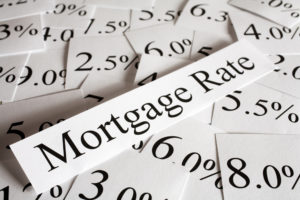Probably you have been scrolling through property listings for a couple of months, and you now envision yourself holding your first dinner party around a wood dining table in your new home. But there is just one thing blocking your way – a 20% down payment. If you got no dime for that, these three words could melt your heart – private mortgage insurance (PMI).
What’s private mortgage insurance?
Simply put, PMI is a type of insurance required on some home loans, particularly if the buyer’s down payment is lower than 20 percent of the property purchase price. And don’t get this twisted. Private mortgage insurance isn’t just for homebuyers who cannot afford the required down payment. It is also essential for individuals who don’t plan to pay a 20% down payment. That means they will have more cash for remodeling, repairs, furnishing the home, and financing emergencies.
Why should you pay for PMI?
Most borrowers take out PMI because their preferred lenders require it. After all, the borrower intends to put down less than the industry-set 20 percent of the property’s sales price. Therefore, the less a borrower offers for a down payment, the higher the risk to a lending institution. PMI is intended to cover the lender in the event that the borrower defaults.
Note that you can neither choose the private mortgage insurance provider nor negotiate the premiums. Well, this sounds un-American, but this is exactly what happens whenever a home buyer gets a mortgage that exceeds 80% LTV (loan-to-value).
The 20% down payment
If, for instance, you choose to pay 5% (down payment) on a $300,000 home and for some reasons stopped paying your installments, the PMI will pay the lender $45,000, which is the 15% that you didn’t pay to protect the lending institution to an 80% LTV. This is likely to happen after foreclosure.
The FHA (Federal Housing Administration) also charges for PMI as well. That means the property buyer must pay an upfront premium for PMI, monthly premiums, along with the interest, principal, taxes, and insurance for home coverage.
Getting rid of PMI
For some positive news to property buyers, there are a few things you can do to eliminate PMI.
1. Pay extra on your monthly mortgage payments
It’s possible to overpay on your monthly mortgage payments and reach a particular point that you owe 80 percent or less. Sure, this might get tricky because you must get extra cash each month. But if you can manage extra a few thousands of dollars for your mortgage, why not do it and get done with the private mortgage insurance?
2. Get a new property appraisal
It is advisable to keep track of your property’s value. Probably its value is increasing because more people are moving to the neighborhood. A higher value means more equity under your name. Request a new home appraisal from your lender. If the property’s value has increased to boost the overall equity to 20 percent or more, there’s a good chance you can get the PMI eliminated. As long as everything you owe is less than 80 percent of the new value, you can ask your lender to the private mortgage insurance.
Remember, it is up to you to take care of all costs associated with the new appraisal and follow the right steps involved in getting a lender to end PMI payments.
Avoid PMI
The most effective way to avoid paying private mortgage insurance is to buy your home in cash. Yes, it’s possible. Just save up and make the recommended 100 percent down payment. You’ll be surprised at how easy and affordable property shopping can be if you pay cash.
However, not everyone can afford a property in cash. However, you can still avoid private mortgage payments by paying 20% or higher for a down payment. Just think how much cash you can save by avoiding PMI payments.
Bottom line
Private mortgage insurance is a costly necessity for property buyers who lack enough resources to make a 20 percent down payment. Though it can be eliminated once you pay down enough of your loan’s principal or your equity increases, it’s best to avoid PMI when you can.



